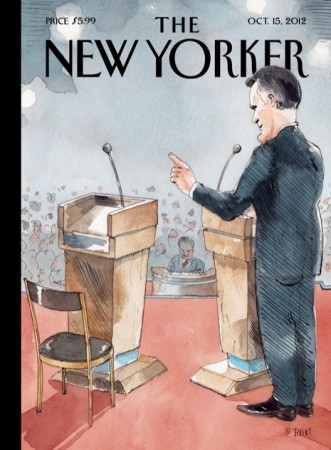Jonathan Tobin:
But not only was Obama not interested in any such gesture, he was not prepared to tell him this to his face. This snub may stem from the open dislike the two men have for each other, but as I wrote earlier this week, this is about more than personalities. The message from Washington was clear: Israel has no leverage over Obama on this issue even during the presidential campaign and will have even less in a second term.
Netanyahu has been accused of trying to play politics with Obama during the last months of the presidential campaign or of favoring Mitt Romney. But whatever Netanyahu thinks privately, it should be understood that his concern transcends any misgivings about Obama’s penchant for picking fights with Israel during the past four years. If he really thought Romney might win, he would be showing more, not less patience with Obama since presumably Israel would only have a few months to wait before getting a different answer from a more sympathetic White House.
It’s worth reading Tobin’s post in full, as well as his earlier post (linked in the quoted segment above).
As Tobin makes clear, the media’s “clash of personalities” framing of the issue has helped Obama by obscuring the conflict of interests between his administration and Israel. Obama will do nothing substantial to stop Iran from getting nuclear weapons and no longer cares who knows it. Perhaps if he is reelected he will begin to discuss “containing” Iran, and eventually will push for a regional nuclear treaty that will be designed to get Israel to disarm in exchange for Iranian promises. Good luck with that. In any event it seems unlikely that Obama, who was unwilling publicly to oppose the mullahs when it would have been easy to do and might have brought them to heel, will begin to act resolutely against them once they acquire nukes.
The key insight from Tobin’s post may be in the last sentence of the second paragraph above. If Netanyahu were confident of a Romney victory it would make little sense for him to engage the obstreperous Obama now. The fact that Netanyahu decided to run the risk suggests that he thinks Obama is likely to be reelected or that little time remains for an effective strike on Iranian nuclear facilities. If this reasoning is correct Israel may attack soon, perhaps shortly after the election if Obama is reelected.
The current situation is more than a little like the period before the Six Day War. There are bellicose enemies, feckless allies, an existential threat to the Jews, fruitless diplomacy under the clock, much FUD about a possible world or regional war as a result of an Israeli attack, a difficult tactical problem, and a coalition government in Israel. Some things that are different are the degree of direct US involvement in the Middle East, Islamism, the absence of the USSR, and probably a weaker political consensus within Israeli society. We will know soon enough what Netanyahu and his cabinet decide to do.
To be, or not to be, that is the question:
Whether ’tis Nobler in the mind to suffer
The Slings and Arrows of outrageous Fortune,
Or to take Arms against a Sea of troubles,
And by opposing end them…
UPDATE: See also this post on Israeli politics (via Seth Mandel).
UPDATE 2: Richard Fernandez puts Obama’s bungling into perspective in the context of long-term US policy mistakes:
Read more
